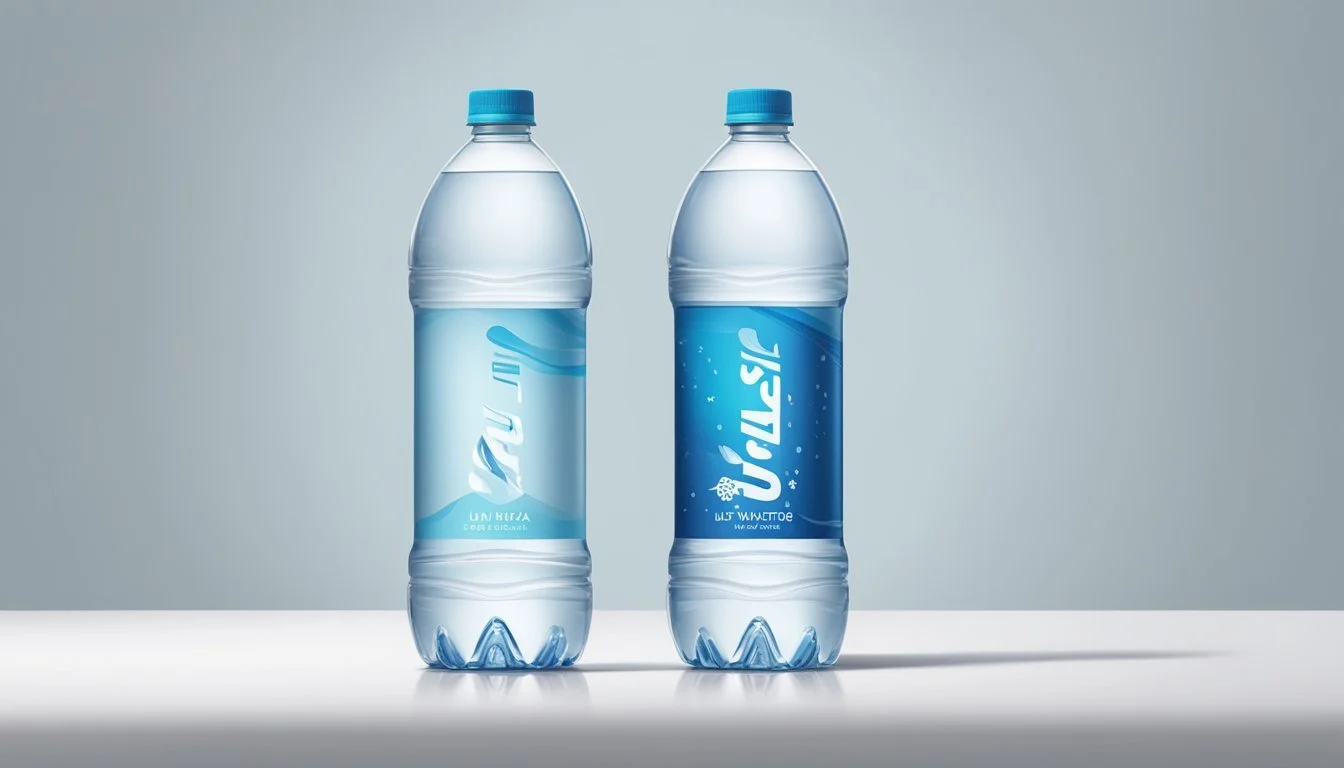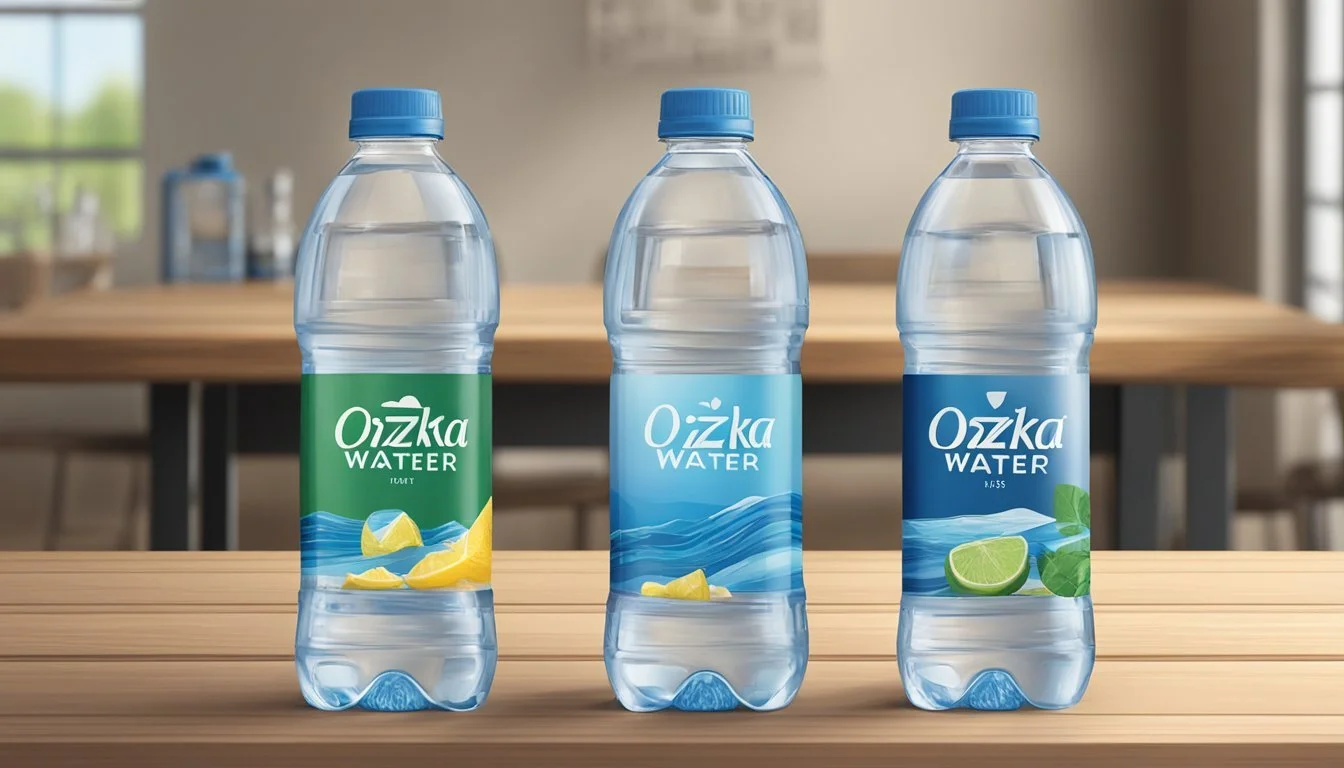Just Water vs. Ozarka
A Comparative Analysis of Quality and Taste
In the realm of bottled water, consumers are faced with an array of choices, each claiming its own benefits and superiority. Among these many options, Just Water and Ozarka stand out as distinct brands with their own following. Just Water, known for its eco-friendly packaging and branding, offers a product that is marketed as responsibly sourced and packaged with an eye toward sustainability. Its unique carton-based bottle, comprised mainly of paper from sustainably managed forests, sets it apart in the environmentally conscious market segment.
Conversely, Ozarka, sourced from springs in Texas, offers a taste of the region's natural resources. This brand prides itself on providing naturally occurring electrolytes and a fresh taste that reflects its spring water origins. Ozarka's commitment to Texas also carries an element of local pride, positioning the brand as a staple in its regional market. Both brands have their merits and cater to different consumer preferences, highlighting the diverse criteria shoppers consider when selecting bottled water—from taste and source to environmental impact and brand messaging.
Comparison Criteria for Bottled Water
When selecting bottled water, it's important to consider a variety of factors that contribute to the quality and appeal of the water. The following criteria are critical in comparing and contrasting different bottled water brands such as Just Water and Ozarka.
Taste and Purity
The taste of bottled water is a subjective measure influenced by its mineral content and purity. Contaminants can adversely affect flavor, so waters that are thoroughly purified often provide a cleaner, more refreshing taste. Both Just Water and Ozarka claim to offer pure water with a pleasant taste.
Health and Hydration Benefits
For health and hydration, consumers should look for water that maintains an optimal balance of electrolytes without added substances. Just Water emphasizes its natural mineral content, while Ozarka, sourced from natural springs, underscores its healthful, hydrating properties.
Environmental Impact
Environmental impact stands as a significant consideration, focusing on sustainability and the ecological footprint of bottling practices. Just Water touts its plant-based carton, whereas Ozarka highlights its recyclable bottles and commitment to water stewardship.
Sourcing and Water Source
The water source serves as a central factor—Just Water originates from a natural spring in upstate New York, offering a low-mineral composition. In contrast, Ozarka is sourced from natural springs across Texas, boasting a unique regional mineral taste profile.
Production and Purification Process
Production and purification processes determine the final water quality. Both brands use various methods to ensure their water meets safety standards. Just Water relies on an eight-step filtration process, while Ozarka emphasizes natural filtration through the earth's layers.
Brand Reputation and Consumer Trust
Lastly, brand reputation and consumer trust reflect the brands' history and the public's perception. Just Water has built a name around its ethical mission and transparency, while Ozarka's long-standing presence in the market speaks to a reliable consumer base attracted to its heritage and consistent quality.
Just Water: Brand Overview
Just Water is recognized for its eco-friendly packaging and commitment to sustainability. Their product is sourced responsibly, and they maintain transparency in pricing and distribution.
Packaging and Sustainability
Just Water stands out with its innovative packaging, designed to reduce environmental impact. The brand uses paper-based bottles with a sugarcane cap, which are 82% renewable resources by volume. The company focuses on sustainability, prioritizing materials that are recyclable and leave a smaller carbon footprint.
Water Source and Composition
The source of Just Water is a spring in the Adirondack Mountains. Its composition is naturally high in alkalinity with a pH level of 8.0. This water contains a balance of minerals, giving it a smooth and clean taste. Just Water ensures the community and ecosystem around the water source are positively impacted by their operations.
Price and Accessibility
Price varies by retailer, but Just Water is generally positioned as a mid-range priced product. Accessibility is catered to through a broad distribution network, including online platforms and physical retail stores. Just Water focuses on making their product convenient for consumers to purchase while maintaining fair pricing strategies.
Ozarka: Brand Overview
Ozarka is a bottled water brand known for its natural spring water sourced from Texas. It is a part of Nestlé Waters North America, one of the largest bottled water companies.
Packaging and Environmental Initiatives
Ozarka emphasizes environmental responsibility by using recycled materials and ensuring their packaging is recyclable. The brand aims to strike a balance between convenience and sustainability.
Water Source and Mineral Content
The water for Ozarka comes from multiple springs located across Texas, notably from areas known for their natural purity. The brand touts a balanced mineral content, which contributes to the water's taste and quality.
Price and Market Presence
Ozarka positions itself competitively in terms of price against other brands. They have a strong market presence in the Southern United States, particularly in Texas, which is the brand's main market.
Taste Profiles and Water Quality
When considering bottled water options like Just Water and Ozarka, consumers often evaluate taste profiles and water quality, which are influenced by factors such as mineral content and pH levels.
Taste Comparison
Just Water prides itself on a crisp and clean taste, owing to its natural sourcing from a spring in the Adirondack Mountains. Customers have noted its neutral flavor which can be attributed to its minimal processing. Ozarka, sourced from Texas springs, is characterized by a slightly more robust mineral taste, which some drinkers prefer for its "earthiness" and "natural" flavor profile.
Quality Standards and Regulations
Both Just Water and Ozarka must adhere to strict FDA regulations for bottled water. These regulations ensure that bottled water products are safe to drink and free from contaminants. Water quality is monitored through consistent testing and adherence to these federal standards, which include limits on chemical substances, microbiological parameters, and radiological constituents.
Just Water: Complies with FDA standards; additional eco-friendly packaging efforts.
Ozarka: Meets FDA regulations; emphasizes local sourcing and natural filtration.
Mineral Content and pH Levels
The mineral content and pH levels of water contribute significantly to the overall taste and health perception.
Just Water:
Minerals: Quite low mineral content.
pH Level: Typically around 8, indicating a slightly alkaline quality.
Ozarka:
Minerals: Higher levels of calcium, magnesium, and potassium.
pH Level: Generally ranges from 6.5 to 7.5, closer to neutral pH.
Both brands offer quality drinking water, but with distinctive mineral signatures that appeal to different consumer palates.
Health Implications
When comparing Just Water to Ozarka bottled water, one must consider the health implications stemming from hydration efficiency, contaminant levels, and the overall contribution to health these products offer.
Hydration and Electrolytes
Just Water, a brand marketing itself with an eco-friendly image, also emphasizes its product’s natural mineral content, which can include a balance of electrolytes such as calcium, magnesium, and potassium. These electrolytes aid in maintaining proper hydration. On the other hand, Ozarka, sourced from Texas springs, similarly contains natural minerals, contributing to hydration needs.
Contaminants and Safety Concerns
Contaminants in bottled water can range from trace minerals to potentially harmful substances. Consumer Reports' testing has indicated the presence of PFAS chemicals in some bottled water brands, which raises safety concerns. While Just Water and Ozarka are subject to stringent safety inspections, consumers often rely on brand transparency to understand water quality. They should look for certifications and water quality reports to ensure safety standards are upheld.
Water and Overall Health
Water is essential for overall health, and choosing a safe, clean source is crucial. Both Just Water and Ozarka claim to provide clean drinking water that complies with federal and industry safety standards. Regular consumption of quality water like that provided by Just Water and Ozarka can support bodily functions such as nutrient transport, digestion, and temperature regulation.
Environmental and Ethical Considerations
Choosing between Just Water and Ozarka bottled water involves considering various environmental and ethical factors. These considerations impact not only the environment but also the communities involved in production.
Bottling Process and Its Ecological Footprint
Just Water prides itself on a low carbon footprint bottling process. Their bottles are made of paper from sustainably managed forests, with a cap made from sugarcane. This design is focused on reducing greenhouse gas emissions associated with production. On the other hand, Ozarka, despite being a well-known brand, has not made such specific ecological commitments publicly known.
Material Use and Waste Management
Both Just Water and Ozarka use materials that are deemed recyclable. Just Water’s bottle is composed of 82% renewable resources, which emphasizes the use of materials that have a lower environmental impact. Their packaging is also designed to be fully recyclable. Ozarka, packaged primarily in PET plastic, also offers recyclable bottles. However, the recycling rates and the success of waste management efforts can vary regionally, which affects the overall environmental footprint of these products.
Ethical Sourcing and Social Responsibility
Just Water sources its water ethically, ensuring that it does not deprive the local communities of their water resources. Furthermore, the company places an emphasis on social responsibility, often investing in the communities where they operate. Ozarka, sourced from multiple springs in Texas, is owned by Nestlé Waters —a company with a global presence and various initiatives aimed at sustainability and community support. However, the scale of these initiatives compared to the company's size is subject to scrutiny.
Consumer Opinions and Brand Perceptions
In the competitive bottled water market, brand perceptions and consumer opinions often drive purchase decisions. How customers perceive Just Water and Ozarka, as indicated by their reviews, loyalty, and overall behavior, is crucial to each brand's performance.
Customer Reviews and Ratings
Just Water and Ozarka have generated distinct customer reactions reflected in their reviews and ratings. Online retail platforms and consumer forums frequently feature these evaluations, providing a wealth of data on customer satisfaction.
Just Water: Typically, reviews highlight the eco-friendly packaging and the company's sustainability efforts. Ratings often commend the taste and purity of the water.
Ozarka: Reviews for Ozarka tend to praise its affordability and availability. The brand's long-standing presence in the market contributes to a solid average rating.
Brand Loyalty and Advocacy
A brand's ability to retain customers and inspire advocacy is a testament to its strength in the market.
Just Water: Brand loyalty emerges from its environmental ethos, with repeat customers explicitly supporting the company's mission.
Ozarka: Loyal consumers often cite consistency in quality and taste as reasons for their continued preference, with some advocating for Ozarka based on regional pride.
Market Trends and Consumer Behavior
Consumer behavior and the broader market trends provide context to the standing of Just Water and Ozarka.
Just Water: The brand leverages an increasing consumer shift towards environmentally responsible products, which resonates with a growing segment of the market.
Ozarka: Market trends indicate a preference for established brands in certain demographics, and Ozarka's long history satisfies this segment.
Both Just Water and Ozarka must navigate these factors to maintain and grow their market share.
Final Thoughts: Making an Informed Choice
When consumers are faced with the choice between Just Water and Ozarka, several factors come into play. It's important to consider the source, purity, taste, packaging, environmental impact, and price of the products.
Just Water prides itself on ethical sourcing and eco-friendly packaging. Their bottles are made from 82% renewable resources, including plant-based plastic and paper. Additionally, Just Water claims their spring water is responsibly drawn from a community source.
Ozarka, on the other hand, offers natural spring water sourced from Texas springs. While they provide water of high quality, their environmental efforts are less emphasized compared to Just Water. Their bottles are predominantly plastic, which is less sustainable than plant-based materials.
Just Water Ozarka Ethical sourcing Natural Texas spring water Eco-friendly packaging Standard plastic bottles 82% renewable materials Environmental efforts known Community-oriented -
Consumers should weigh the importance of sustainability practices against the convenience and often lower cost of more traditional bottled waters like Ozarka. Taste is subjective, but the quality of both brands is within industry standards.
Ultimately, the decision rests with the individual's values and needs. If one prioritizes environmental considerations, Just Water may be the preferred choice. If convenience and cost-effectiveness are paramount, Ozarka might be more suitable.
In making an informed choice, it's crucial that consumers research and understand the implications of their purchase, not only on their health but also on the environment.







